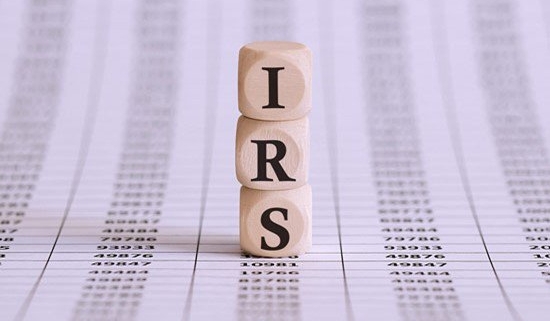The IRS Achieves a 99% Conviction Rate – Say No to Tax Evasion
- Discover the IRS’s staggering conviction rate when it comes to tax fraud and financial crimes.
- Learn the consequences of tax evasion.
- Find information about audits and the cost of professional help to help assist in your defense.
The Internal Revenue Service recently came out with its annual Enforcement Report, and the numbers themselves don't lie. In addition to the overall instances of tax fraud identified that totaled $5.7 billion, the IRS further found another $26.9 billion in financial crimes. All told, there were over 1,200 warrants executed in the last year alone. These are in addition to the 1,837 crimes that were ultimately referred for prosecution. If you've ever considered the idea of hiding income from the IRS (tax evasion), the numbers don’t lie. If IRS decides to prosecute, your chances of successfully defending yourself are slim.

Overall, the IRS has a staggering 99.6% conviction rate when it comes to these types of crimes. To put that into perspective, in 2018 the federal government filed 79,704 cases for a myriad of different crimes. Of that total, only 320 resulted in acquittals – meaning that you're more likely to get away with a drug offense, a property offense, or even a violent crime than you are lying to the IRS.
All of this is to say that there is a lot that can go wrong with tax evasion. This is true for a wide range of different reasons, all of which are worth exploring.
The Consequences of Tax Evasion: What You Need to Know
If the IRS finds some type of discrepancy on the return that you file, at a bare minimum they will likely send you a notice. This is true whether or not they suspect that the issue was a result of malicious intent.
Keep in mind that the IRS doesn't just get information about your tax returns every year from the filer. They also compare information obtained from employers, payment processors, banks, and other financial institutions. If there is anything that doesn't formally line up between those sources, you will likely get a notice in the mail with a request to provide additional documentation.

Additional Considerations
Audits
Another step that the IRS can take during these matters involves a formal audit. This is a lengthy (and sometimes costly) process that will essentially see representatives from the IRS go over your income tax returns, W-2 forms, and other financial statements with a fine-toothed comb to get to the bottom of what, if any, issues have been identified. Some estimate that the more complicated audits can last more than a year. They can also result in late fees, penalties, and more if IRS determines that income has not been disclosed or non-deductible expenses claimed. It's been estimated that the average audit results in an additional $9,500 of taxes owed. This is obviously a situation you would want to avoid if you can.
The cost of professional help
This is all before you get into the additional costs of paying for professional help to assist in your audit defense in the first place. If the IRS suspects that you knowingly lied – and that you're hiding a significant amount of money – they will come at you in full force and if criminal tax evasion is found, potential jail time may be involved. Defending yourself and avoiding civil penalties almost immediately becomes an uphill battle. And it will require additional assistance. So not only will you pay a professional to help, but you will also end up paying the IRS what you owe. Instead, you could just be honest about your income taxes and avoid this type of situation altogether.
In the end, tax evasion really isn't worth it – both in a figurative sense and in a literal one, too. All of this underlines the importance of partnering with a tax professional for your financial needs. Not only can they help you avoid this type of situation, but they can also (legally) minimize your income tax bill for both businesses and personal filers alike. Then, you can enjoy all the benefits of the United States tax code with as few downsides as possible.

Next Steps
Want more information about what could happen if you try to beat the IRS' current enforcement effort? Have any additional questions that you'd like to go over with someone in more detail? Call Fiducial at 1-866-FIDUCIAL or make an appointment at one of our office locations to discuss your situation.
Ready to book an appointment now? Click here. Know someone who might need our services? We love referrals!









